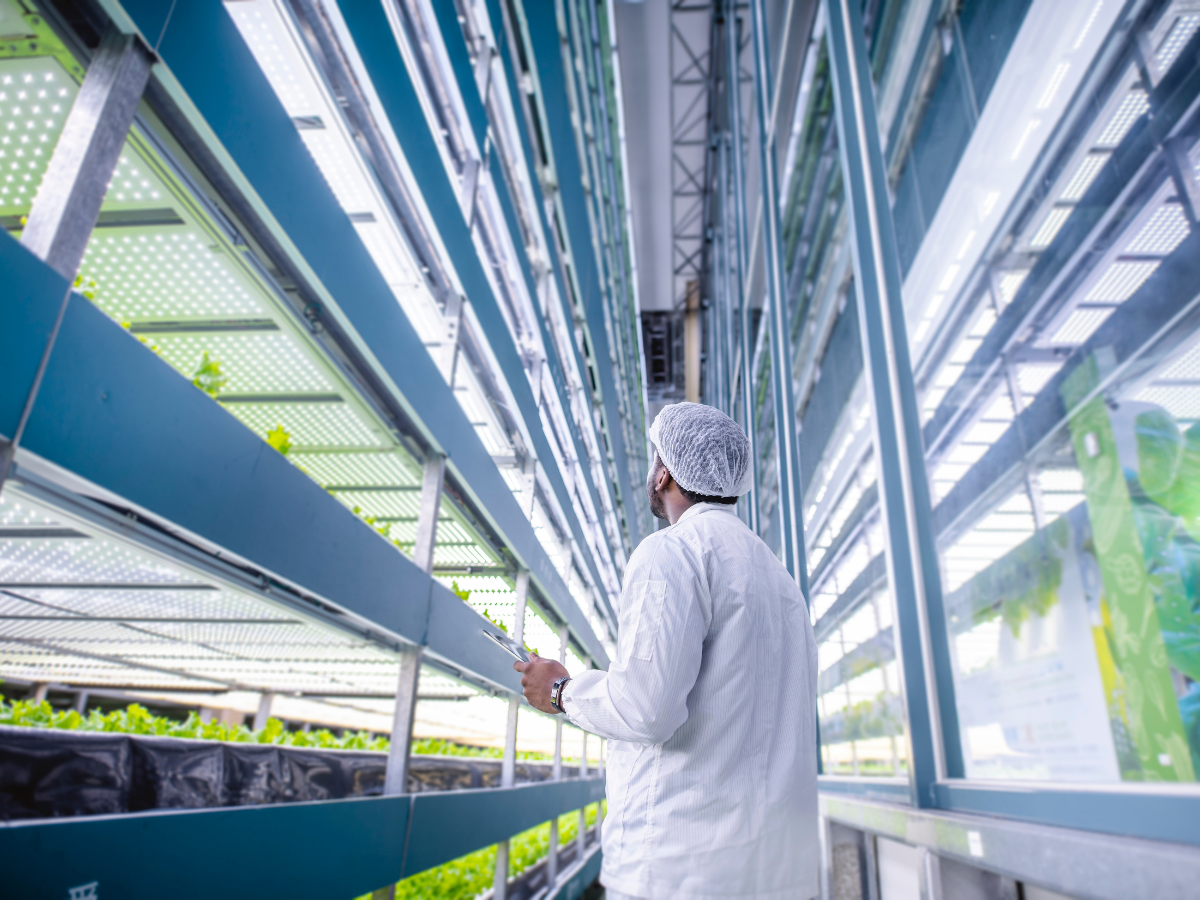Vertical Farming: Growing Upwards in Urban Areas

Vertical farming is an innovative agricultural approach that involves growing crops in stacked layers, often in controlled indoor environments. This method maximizes space usage and can be implemented in urban areas where traditional farming is not feasible. As cities continue to expand and arable land becomes scarcer, vertical farming offers a sustainable solution to food production challenges. In this blog, we will explore the concept of vertical farming, its benefits, challenges, and potential for scalability in the UK.
The Concept of Vertical Farming
Vertical farming uses vertically stacked layers or towers to cultivate crops, employing hydroponic, aeroponic, or aquaponic systems instead of soil. These methods allow for precise control over environmental conditions such as light, temperature, and humidity, creating optimal growing conditions for a variety of crops. Vertical farms can be located in urban settings, including repurposed buildings, rooftops, and specially designed structures.
Benefits of Vertical Farming
Vertical farming significantly increases agricultural output per square foot compared to traditional farming. This is particularly beneficial in densely populated urban areas where land is limited and expensive.
Water Conservation Hydroponic and aeroponic systems used in vertical farming require significantly less water than conventional soil-based farming. These systems recycle water, reducing overall consumption by up to 90%.
Year-Round Production Controlled indoor environments eliminate the dependency on seasonal changes, allowing for continuous, year-round production of fresh produce. This consistency helps stabilize food supply and prices.
Reduced Transportation Emissions
By situating farms within or near urban centers, vertical farming reduces the need for long-distance transportation of food, lowering carbon emissions and ensuring fresher produce reaches consumers faster.
Pesticide-Free Produce Indoor farming environments are less susceptible to pests and diseases, reducing or eliminating the need for chemical pesticides. This results in healthier, pesticide-free produce.
Challenges of Vertical Farming
Setting up vertical farming systems involves significant initial investments in infrastructure, technology, and energy. The costs of building, lighting, and climate control can be prohibitive for many potential farmers. Vertical farms rely heavily on artificial lighting and climate control, leading to high energy consumption. Although energy-efficient LED lights and renewable energy sources can mitigate this issue, energy costs remain a significant factor. Technical Expertise Managing a vertical farm requires knowledge of advanced farming techniques and technologies. Farmers need training and expertise in areas such as hydroponics, data analytics, and system maintenance.
The economic viability of vertical farming depends on factors such as crop selection, market demand, and operational efficiency. High-value crops like leafy greens, herbs, and microgreens are often more suitable for vertical farming. The UK is witnessing a growing interest in vertical farming, driven by the need for sustainable urban food production and the desire to reduce reliance on imported produce. Several innovative companies and initiatives are leading the way in this field.
Growing Underground
Located beneath the streets of London, Growing Underground is a pioneering vertical farm that utilizes disused tunnels to grow microgreens and herbs. Using hydroponic systems and LED lighting, this farm produces fresh, pesticide-free produce for local markets and restaurants.
AgriTechs, based in London, develops advanced vertical farming systems that combine precision agriculture with AI and IoT technologies. Their scalable, modular systems are designed to optimize resource use and maximize yields. Their facility uses hydroponics and automation to produce a wide range of leafy greens and herbs, supplying major retailers across the UK.
Potential for Scalabilit
The potential for scaling vertical farming in the UK is substantial, particularly with advancements in technology and growing consumer demand for locally sourced, sustainable produce. Government support and investment in research and development can further drive the growth of this sector. Collaborative efforts between technology providers, researchers, and farmers will be crucial in overcoming challenges and expanding the reach of vertical farming.
Vertical farming presents a promising solution to the challenges of urban food production, offering numerous benefits such as space efficiency, water conservation, and year-round production. While there are challenges to overcome, including high initial costs and energy consumption, the potential for scalability in the UK is significant. As technology advances and urban populations grow, vertical farming could play a vital role in ensuring food security and sustainability. By growing upwards, we can create a more resilient and sustainable food system for the future.






